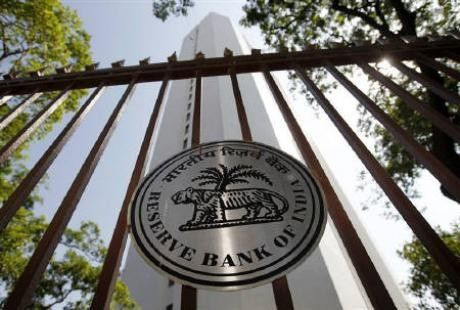Reserve Bank Of India Likely To Ease Repo Rate Oct 30

The Reserve Bank of India (RBI) is expected to ease the rates at the forthcoming policy meeting Oct. 30 amid the growing concerns about the deteriorating growth prospects of the country's economy.
India's economic growth rose in the first quarter of the fiscal year 2012-13 compared to that in the January-March quarter of the last fiscal, indicating that the country's economy is moderately improving though the soft global demand and the weak domestic policy measures have affected it.
India's gross domestic product (GDP) grew 5.5 percent in the first quarter, up from 5.3 percent in the previous quarter, according to the data released by the Central Statistical Office. However, the economy continues to face a slowdown, compared to the previous years.
In the quarter ending December 31 2011, the GDP growth was 6.1 percent. In the 2011 July-September quarter, the growth was 6.9 percent. The country saw an annual growth of 8.4 percent in the last two fiscal years.
The RBI has already cut its growth forecast for this financial year (April-March) from 7.3 percent to 6.5 percent. Investors worry that even this rate can turn out to be too optimistic with the global economic condition worsening and the disappointing monsoon, which will have a significant negative impact on the output, inflation and budget.
“Our forecast is for GDP to rise by 6 percent this year and just 5.5 percent in 2013. This is partly because we anticipate a further deterioration in external conditions, particularly in the euro-zone. Also, while the RBI suggests there has been a pick-up in activity in India recently, we are not convinced," Capital Economics said in a note.
Meanwhile, the International Monetary Fund cut the growth estimate for India to 4.9 percent in 2012 and 6 percent in 2013.
India's industrial sector has been the worst affected with the output of capital goods falling steadily. The growth of the automotive sector has fallen and business surveys point to no improvement. The reasons for this include the slow public sector investment and bureaucratic obstacles to large scale investment projects. Private sector business confidence has also been damaged by the sense of policy paralysis and the failure to implement the promised reforms.
India's current account deficit is also weighing on the sentiment. In the April-June period, the current account deficit was 3.9 percent of the GDP at $16.55 billion, down from 4.5 percent of the GDP or $21.7 billion in the January-March quarter. However, for the July-September period, the current account deficit is expected to rise to 4.9 percent of the GDP.
Meanwhile, according to the data released earlier this month by the Ministry of Statistics and Program Implementation, India’s Consumer Price Index eased to 9.73 percent in September, down from 10.03 percent in August.
The decreasing inflation should be good news because it can allow the government to invigorate growth without much concern about the rising prices. Moreover, instead of fighting inflation, the most urgent concern for India appears to be its pro-growth policy stance against the current uncertain global situation.
However, India’s headline inflation in September rose to 7.8 percent, up from the 7.55 percent increase recorded in August, according to the data released by the Ministry of Commerce & Industry. With the government cutting the fuel subsidies in September, the Wholesale Price Index rose to its highest since November 2011.
In September, the RBI decided to reduce the cash reserve ratio from 4.75 percent to 4.50 percent which gave the signal that it was willing to support the government’s efforts to reaccelerate growth. The RBI argues that lower interest rates would do little to boost growth. Indeed, the bank concludes that further reduction of the policy interest rate at this juncture could exacerbate inflationary pressures, rather than supporting growth.
However, the RBI is expected to ease the rates soon amid the growing concerns about the deteriorating growth prospects of the country's economy. Bearing in mind the present economic and financial situation, it is expected that the central bank will announce a rate cut of at least 25 basis points (bps).
Lower interest rates are much needed to support the economy, which has shown signs of losing momentum in the past few months. In April, the central bank surprised the markets with a 50 basis point cut in the main interest rate.
© Copyright IBTimes 2024. All rights reserved.





















